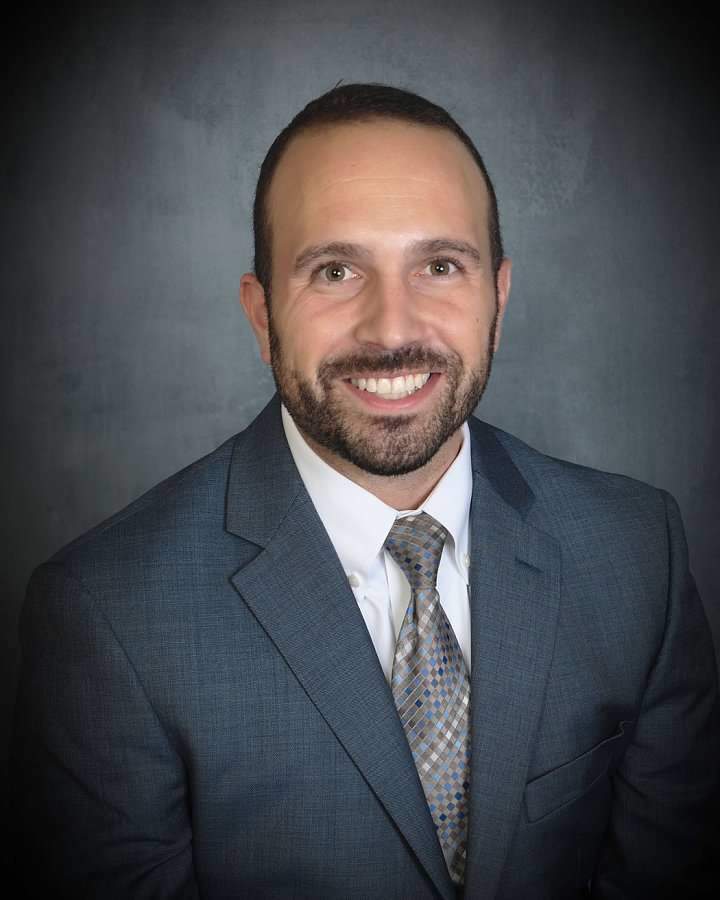When consumers file bankruptcy, they often wonder whether a debt collector can still collect on a debt discharged in bankruptcy. The answer: No. Creditors must cease trying to collect a discharged debt from bankruptcy filers.
Understanding Bankruptcy Discharge
A bankruptcy discharge is a court order that releases a debtor from personal liability for certain debts. This means that the debtor is no longer legally required to pay any debts that are discharged. The discharge is a permanent order that prohibits creditors from taking any form of collection action on discharged debts, including phone calls, letters, and legal actions. Essentially, a bankruptcy discharge provides debtors with a fresh start, allowing them to rebuild their financial lives without the burden of past debts.
Why Can’t Creditors Collect a Debt From Me After Filing Bankruptcy?
Generally, the moment you file a petition for Chapter 7 or Chapter 13, the bankruptcy court issues an automatic stay on dischargeable debts. This is an automatic court order issued upon the bankruptcy filing. During this time, a creditor can’t collect a “consumer debt” and must stop collection efforts. If creditor attempts to collect debts that have been discharged through bankruptcy continue, they could face legal action (including financial penalties).
Under the Bankruptcy Automatic Stay and the Fair Debt Collection Practices Act (FDCPA), creditors are not allowed to harass a debtor (i.e., repetitive phone calls to annoy consumers, using abusive language, and more) before or after they file for bankruptcy. If you’ve already filed for bankruptcy and received a discharge order, but your creditors are still pursuing collection activity on discharged debts and/or harassing you, you may be entitled to compensation.
Contact Ziegler Diamond Law today to speak with an experienced Florida consumer protection attorney. Continue reading to learn more about creditor harassment limits under the FDCPA and the federal bankruptcy code.
What Debts Are Discharged?
Not all debts are discharged in bankruptcy. The types of debts that are discharged vary depending on the chapter of bankruptcy filed. Generally, most unsecured debts, such as credit card debt, medical bills, and personal loans, are dischargeable. However, certain debts, such as taxes, child support, and student loans, are generally not dischargeable. It’s important to understand which debts will be wiped out and which will remain, so you can plan your financial future accordingly.
The Bankruptcy Court Process
The bankruptcy court process involves several steps, starting with the filing of a petition. Once the petition is filed, the debtor must attend a meeting of creditors, where creditors can ask questions about the debtor’s financial situation. The debtor must also complete a plan of reorganization if filing under Chapter 13. The court will review the debtor’s petition and financial information to determine eligibility for a discharge. If the debtor is eligible, the court will enter a discharge order, releasing the debtor from personal liability for certain debts. This structured process ensures that all parties are treated fairly and that the debtor receives the relief they need.
Creditor Limits Under The Fair Debt Collection Practices Act (FDCPA)
Whether you’re in the midst of a bankruptcy case, have already received a bankruptcy discharge, or are considering Chapter 7 or Chapter 13 bankruptcy, a debt collector does not have the right to harass you. That means you should immediately notice drastically reduced collection efforts the day you file bankruptcy. The Fair Credit Reporting Act (FCRA) also ensures that creditors and debt collectors report accurate information to credit reporting bureaus, providing legal protections against violations of accurate reporting, especially for discharged debts.
Generally, a creditor may not engage in the following types of debt collection activities (regardless of the debt incurred):
- Repetitive calls in attempts to annoy debtors
- Make unlawful or unfounded threats if you can’t pay
- Use abusive language
- Contact you after you’ve asked them to stop (in writing)
- Make misleading statements misrepresenting themselves or the consequences of not paying the debts incurred.
- Report falsified information on your credit report
- Directly contact debtors who have an attorney (and they know it)
It’s important to note that the FDCPA applies to most personal and individual debts. However, it does not apply to business debts. If you’ve suffered unlawful debt collection efforts resulting in violations of the FDCPA, our consumer protection attorneys are here to help.
Depending on the circumstances of your case, you may be able to collect monetary damages of up to $1,000.
Ensuring Debts Are Included in Bankruptcy
It is essential to ensure that all debts are included in the bankruptcy filing. Debtors should carefully review their credit reports and financial records to identify all debts, including those that may not be listed on their credit reports. If a debt is not included in the bankruptcy filing, it may not be discharged, and the creditor may continue to collect on the debt. To avoid this, make a comprehensive list of all your debts and double-check it before filing. This thorough approach will help ensure that you receive the full benefits of your bankruptcy discharge.
Stop Creditor Harassment After Bankruptcy Discharge Injunction
Are creditors still harassing you after your bankruptcy discharge? The discharge injunction protects you from creditors attempting to collect on discharged debts, and violating this injunction can lead to legal repercussions for the creditors. You have rights, and our experienced attorneys can help protect you from illegal collection actions. Contact us for a free consultation and take the first step to stop the harassment.
Call (727) 538-4188 (Clearwater)
Schedule Your Free Consultation
All consultations are confidential and pressure-free. Let us assist you in making the best choice for your future.
Can Creditors Collect After Chapter 7 is Filed?
Once a petitioner has filed bankruptcy for bankruptcy under Chapter 7, bankruptcy law dictates that creditors can’t pursue debt collection efforts after the filing (typically 3 – 4 months until the discharge order).
When Can a Creditor Pursue Debt Collection Activity After Bankruptcy is Filed?
Generally, a creditor may not attempt to collect a debt after Chapter 7 bankruptcy filing unless the creditor files, serves, and is granted a Motion for Relief from the Automatic Stay. In that case, a creditor can resume lawful debt collection activities (including calls, letters, and legal action) against the debtor for unsecured debts.
Additionally, creditors can’t pursue debt collection efforts on a debt discharged in bankruptcy. It is illegal for debt collectors to attempt to collect discharged debts, and consumers should be aware of their rights and respond appropriately if contacted. Regarding secured debts, a creditor may revoke a debtor’s property after the first 30 days of the automatic stay issuance.
Can Creditors Come After You After Chapter 13 Bankruptcy?
Similar to Chapter 7 bankruptcy, individuals who file bankruptcy under Chapter 13 shouldn’t have to worry about most creditors pursuing collection activity against them or their property (from the date of the bankruptcy petition filing) due to the inclusion of dischargeable debt. However, a significant difference between Chapter 7 and Chapter 13 is the length of the automatic stay.
Understanding a Motion to Dismiss For Material Default
Since Chapter 13 is a debt repayment plan, the automatic stay is typically in effect for 3 – 5 years or until the bankruptcy case concludes, but there are exceptions.
That’s especially true if you’re concerned about debt collection activity for secured debts or you’ve missed payments and your Chapter 13 trustee files (and is granted) a “Motion to Dismiss for Material Default.” In that case, debt collectors can continue trying to collect on the debt amounts owed (including the interest and fees incurred during the automatic stay period) prior to the bankruptcy filing.
With that in mind, if you’ve missed a payment in your Chapter 13 repayment plan, it’s essential that you immediately contact a bankruptcy lawyer for support as soon as possible. However, regardless of the circumstances, a creditor doesn’t have the right to make harassing phone calls or otherwise violate your consumer protection rights.
What To Do If Your Consumer Rights Are Violated
If you’ve filed for Chapter 7 bankruptcy or Chapter 13 bankruptcy, but your creditors are still harassing you or attempting to collect on the discharged debt, they may be in violation of the U.S. Bankruptcy Code as well as the Fair Debt Collection Practices Act (FDCPA). Additionally, if a creditor sells your discharged debt to a debt buyer, the buyer may attempt to collect on a debt that is no longer owed, potentially violating the FDCPA.
What Happens if a Creditor Pursues Debt Collection Activity After Filing Bankruptcy?
If a creditor violates bankruptcy law by pursuing collection activity after a court issues a bankruptcy discharge on your debt or during the automatic stay period, the bankruptcy court can sanction a violation of the automatic stay and find the creditor in contempt. In that case, the court can impose fines, assess attorney fees, and force the debt collector to pay damages to the defendant. Additionally, creditors and debt collectors must accurately report to credit reporting agencies, as inaccuracies can violate discharge orders and affect a debtor’s credit standing.
What Happens if a Creditor Violates the FDCPA?
On the other hand, if a creditor violates your consumer protection rights at any time, they can also face fines, be ordered to pay damages, and potentially face other legal actions. Generally, the most common consumer complaints filed against creditors include but are not limited to the following:
- Harassment of the debtor by debt collectors, including calls after 9 P.M. or before 8 A.M.
- Unlawful demands for debtors to pay excessive or illegal interest rates, fees, or other charges.
- Failure to send consumers written notice of the debt owed.
It is also important to check your credit reports to ensure that any negative information is accurately reflected by the credit reporting agencies.
Credit Report Monitoring
After receiving a bankruptcy discharge, it is crucial to monitor your credit reports to ensure that all discharged debts are reported correctly. Creditors are required to report discharged debts as “discharged in bankruptcy” or “included in bankruptcy.” If a creditor is reporting a discharged debt incorrectly, you should contact the creditor and request that the error be corrected. Additionally, consider filing a complaint with the Federal Trade Commission or the Consumer Financial Protection Bureau if the issue is not resolved. Regularly checking your credit report will help you maintain an accurate credit history and avoid potential issues in the future.
Contact a Proven Consumer Protection & Bankruptcy Lawyer Today
In most cases, people who seek to have their debts discharged in bankruptcy don’t have the income or resources to repay all of their debt obligations. With that in mind, it doesn’t give creditors the right to violate laws under the U.S. Bankruptcy Code or the Fair Debt Collection Practices Act if you cannot make payments on your debts.
At Ziegler Diamond Law, we’re dedicated to protecting your consumer rights and helping you get your life back on track after experiencing overwhelming debt. Whether you need bankruptcy assistance or want to pursue legal action against unlawful debt collectors, we’ve got your back.
Contact us today to speak with a consumer protection and bankruptcy attorney you can trust.
Ziegler Diamond Law provides effective legal services to consumers in throughout Florida who are facing home foreclosure, unmanageable debts, debt collector harassment, or other debt-related problems.






